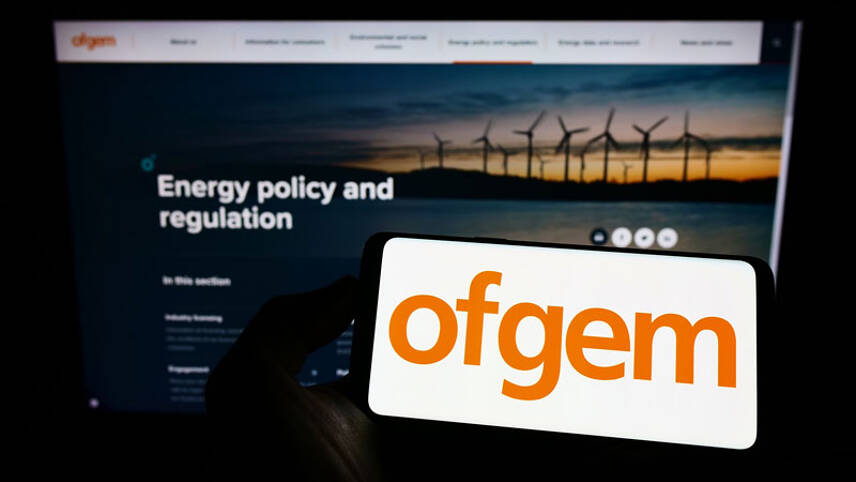Register for free and continue reading
Join our growing army of changemakers and get unlimited access to our premium content

The legal mandate is included within an amendment to the Energy Bill, which was published yesterday evening (6 June). The Department for Energy Security & Net Zero (DESNZ) has said it will amend the regulator’s existing duties to include a reference to the net zero targets outlined in the Climate Change Act 2008.
The new statutory duty will require Ofgem to consider how its decisions assist meeting the Government’s net-zero targets.
It will beef up the regulator’s existing duty to reduce greenhouse gases by forcing Ofgem to consider how its everyday regulatory decisions may assist in meeting the UK’s net zero targets and the carbon budgets laid out in the 2008 legislation.
Wording in Ofgem’s duties about cutting greenhouse gas emissions will be replaced with a specific reference to the Climate Change Act. The new duty will come into force two months after the passage of the Energy Bill, which is currently making its way through Parliament.
The government has come under mounting pressure to equip Ofgem with a statutory net-zero duty.
In April, the House of Lords voted through a Labour amendment to the Energy Bill giving Ofgem a statutory duty to meet the 2050 net zero emissions target.
This vote followed backing by former energy minister Chris Skidmore for the new duty in his major Net-Zero Review, published in January.
However, the government has until yesterday resisted the move with energy minister Lord Callanan previously citing an assurance by Ofgem chief executive Jonathan Brearley that the proposed duty is not “necessary” because the regulator views the transition to net zero as a “fundamental” part of its work.
In his speech at Utility Week Live last month, Brearley said the regulator’s statutory duty to protect the interests of current and future consumers has meant putting the goals of a net zero electricity and system decarbonisation “at the heart of virtually every decision we make”.
However, critics have argued that not having net-zero as a core duty means that Ofgem has tended to prioritise cutting consumers’ bills over potentially more costly investments in the electricity network, which could help the more effective delivery of net zero.
Responding to the government’s announcement yesterday evening, Brearley said: “Our fundamental objective will always be to protect the interests of existing and future consumers. It is at the heart of everything we do. Ofgem welcomes this mandate which brings us in line with the UK government’s legal obligations and, for the first time, directly links consumers’ interests to specific net-zero targets.
“We’re clear consumers are best protected by building a low-carbon, low-cost energy system, scaling up long-term investment and stabilising prices with clean energy. The mandate sends a clear message we must end our historic dependency on fossil fuels and stop our exposure to volatile global markets.
“We’re laying the foundations for the energy system of the future. The net-zero mandate has overwhelming backing from every part of the energy industry, consumer campaigners and climate activists. It underlines net zero is the best option, not only from a climate perspective, but to ensure a secure, low-cost energy.”
Green economy reaction
Sir John Armitt, chair of the National Infrastructure Commission, said: “It’s good that the Government has seen the light on the need for Ofgem to be given an explicit net zero duty. The regulator now needs to use this mandate to build upon their recent decisions to accelerate strategic investment in the transmission network.
“Network investment is absolutely critical to achieving the large-scale shift to renewable energy, and low carbon transport and heating. In the forthcoming second National Infrastructure Assessment, the Commission will make further recommendations on the governance changes needed to support the growth of the electricity network.”
Morag Watson, director of policy at Scottish Renewables, said: “For too long Ofgem’s remit has been past its sell-by date. Today’s decision remedies that position and ensures that the energy industry’s regulator is able to recommend more than just short-sighted changes to the system.
“This announcement is a huge step forward for energy’s place in net-zero and we look forward to working with both government and Ofgem to ensure it delivers the maximum possible benefits for Scotland and the UK.”
The REA’s (Association for Renewable Energy and Clean Technology) chief executive Dr Nina Skorupska said: “This is a hugely welcome commitment that makes sense from both a practical and cost-effective standpoint.
“A low-carbon and low-cost energy system will help to scale up long-term investment and stabilise prices. This, in turn, will help protect consumers, ensuring they receive the benefits of a decarbonised, affordable, and secure energy system. It should also encourage flow through to more supportive net zero decisions in the wider energy system, including addressing current substantial grid connection delays.”
David Blackman
This article first appeared on edie’s sister title Utility Week


Please login or Register to leave a comment.